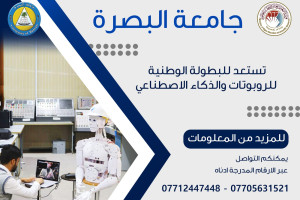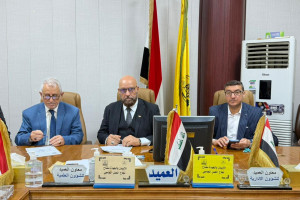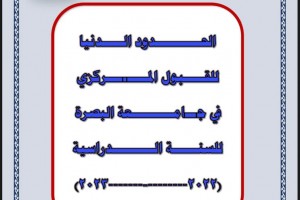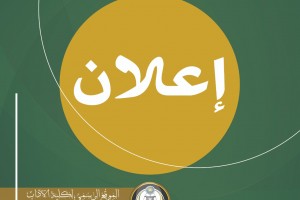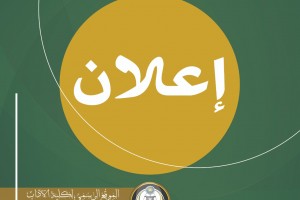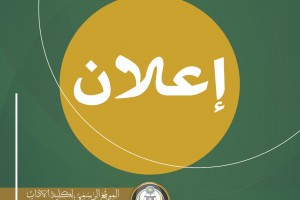
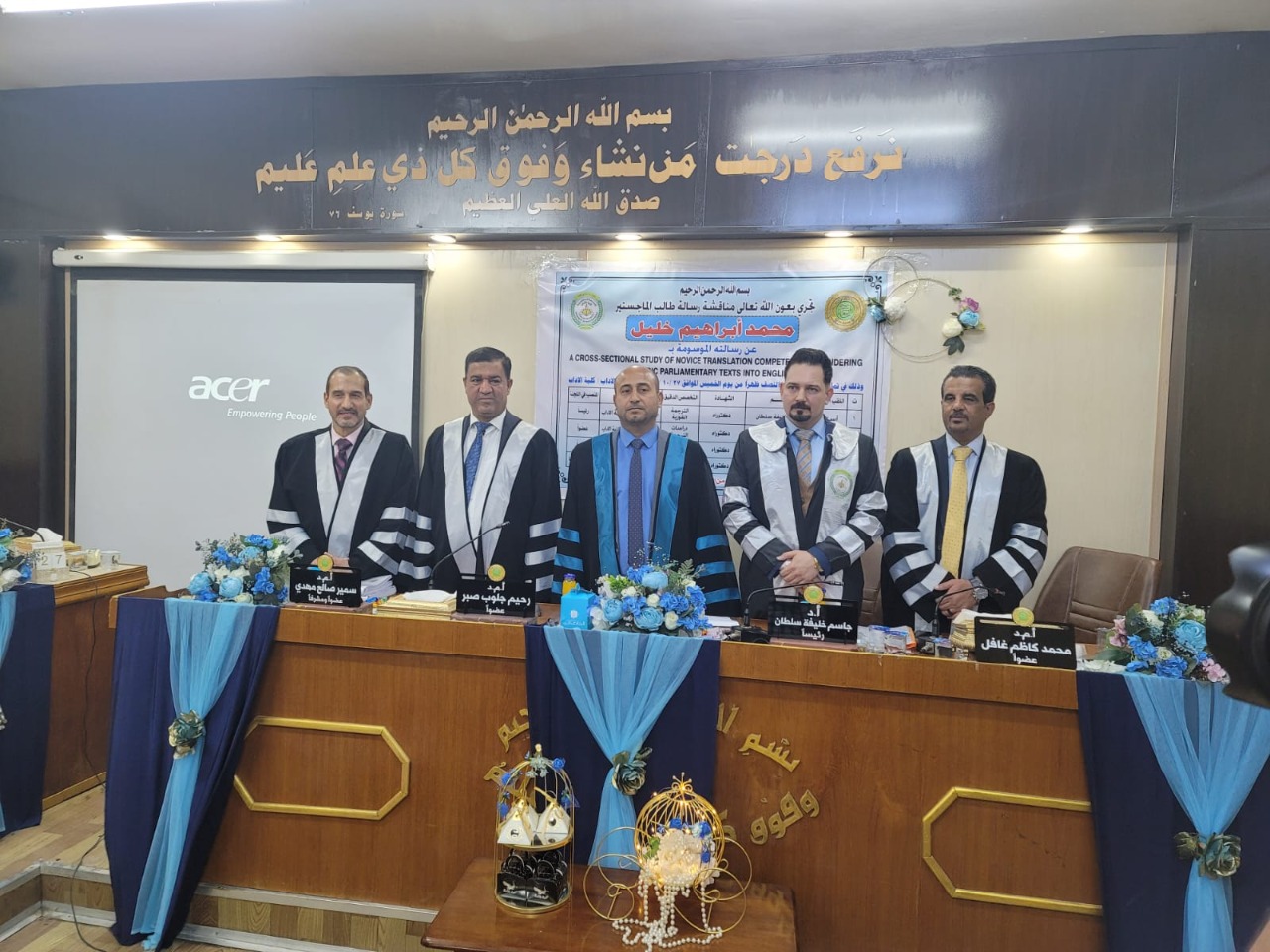

An instructor in the Department of Translation, Professor Dr. Jassim Khalifa Sultan, presided the discussion committee for the master’s thesis tagged (a cross-sectional study of the efficiency of translation of Arabic parliamentary texts into English by the student (Mohamed Ibrahim Khalil) from the College of Arts / Al-Mustansiriya University, on Thursday 17/10/2022.
The discussion committee consisted of both Prof. Dr. Muhammad Kazem Ghafeel Al-Askari and Prof. Dr. Rahim Saberglob Al Kaabi. The student worked under the supervision of Prof. Dr. Samir Salih Mahdi Al-Dahwi.This study aims to focus on the concept of translation efficiency for novice translators when translating (parliamentary texts) from Arabic into English. It also focuses on understanding the idioms associated with legal terminology, and the way in which novice translators (the fourth stage students in the translation department at Al-Mustansiriya University).If you take three tests: the first and second tests are based on perception, while the third test is based on production. This study also seeks to achieve a set of objectives, first: Determining the efficiency of novice translators when translating parliamentary texts from Arabic into English. Second: assessing the levels of awareness and identifying the expressions of the legal field. Third: Assessing the translation production of students/junior translators to measure their linguistic, strategic and translation competence. Fourth: Clarifying some of the strategies and skills that students are supposed to follow when dealing with this type of translation in order to overcome difficulties. Fifth, identify the errors of novice translators when translating parliamentary documents and discuss their possible causes.
It is built on two assumptions, first: the awareness of parliamentary texts/legal terms in the source and target language tends to reduce the errors of novice translators. Second, demonstrate mature translation skills through an understanding of these text types.
The study reached some conclusions, such as, first: the translators need to be familiar with the legal systems of the source language and the target language, and to be able to compare them with their competence in language and translation skills. Second, it became clear that translation competence is qualitatively different from bilingual competence, a specialized field of knowledge in which strategic knowledge prevails.
Moreover, translation competence consists of several hierarchical competencies that are interlinked with the strategic sub-competence that occupies a dominant position. Third, translation competence is the “basic knowledge of good rendering” that comes from the accumulation of information and capabilities and the improvement of skills resulting from the problems faced by novice translators. Therefore, improving their knowledge and skills is a crucial factor in this profession.


